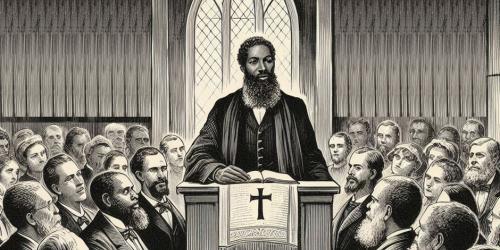Reformation Theology Blog
How to Deal with Anger or Desire for Revenge
Question:
Say I become angry unadvisedly or desire to revenge wrongs done to me. How may I remedy this sin?
Answer:
Against unjust anger or a private desire for revenge, meditate on the following:
Consider that injuries happen to us by the Lord's appointment for our good (2 Samuel 16:10).
Reflect on God's great goodness in forgiving us far more sins than we could ever forgive in others.
Remember that Christian love dictates that we forgive others.
But Spiritual Discernment is Wholly Lost Until we are Regenerated
The following selection by John Calvin was taken from book 2, chapter 2 parts 18-21 of The Institutes of The Christian Religion, translated by by Henry Beveridge, Esq. A must read for all Christians who aspire to better understand the Bible's teaching on man's spiritual impotence prior to the regeneration of the Holy Spirit.
18. The limits of our understanding
Various necessary observations suitable for a Christian
Published long ago by an anonymous believer.
I. That you keep a close watch over your heart, words, and deeds continually. Psalm 93:1, Matthew 24:42, Luke 12:36, 1 Corinthians 10:13, 15:34, 16:13, Colossians 3:17.
II. That with all care the time be redeemed that has been idly, carelessly, and unprofitably spent. Ephesians 5:16, Colossians 4:5.
III. That at least once in the day, private prayer and meditation be made. Psalm 119:164, Daniel 6:10, Luke 18:1, Ephesians 6:18, Colossians 4:2.
IV. That care be had to do and receive good in company. 1 Thessalonians 5:11.
Navigating the Postmodern Malaise
In the postmodern context, the emphasis on individualism and subjective experience can lead to a sense of fragmentation and isolation. As society places a higher value on personal autonomy and self-expression, communal bonds and shared values can become weakened. This fragmentation can manifest in various ways: in the disintegration of traditional community structures, in the rise of virtual relationships over physical ones, and in the feeling that one's personal experiences and struggles are unique and incomprehensible to others.
What are some of the different views of interpreting Revelation?
The Book of Revelation, with its rich symbolism and apocalyptic imagery, has been interpreted in various ways throughout Christian history. These interpretations can be broadly categorized into four main views. Each view approaches the text with different assumptions about how and when Revelation's prophecies are or will be fulfilled:
Preterist View:
Strategies for Effective Reading
The allure of boasting about the sheer number of books one has read is a common pitfall. However, this approach often leads to superficial engagement with the material. True wisdom is not in the quantity, but in the depth of understanding. Resist the temptation to read merely for the sake of competition or to inflate one's perceived intellect. The essence of reading lies in the assimilation and comprehension of ideas, not in accumulating titles under one's belt.
What is the purpose of a creed or confession?
The purpose of a creed or confession in Christian theology, particularly from a Reformed perspective, is multifaceted:
Doctrinal Summary: Creeds and confessions provide a concise summary of essential Christian doctrines. They distill the core teachings of the Bible, making it easier for believers to understand and articulate their faith.
Teaching Tool: These documents serve as teaching tools within the church. They help in educating members, especially new believers, about the fundamental beliefs and principles of Christianity.
Christ's Coming Is At Our Midnight
By WILLIAM BRIDGE, Preacher of the Word of God at Yarmouth.
In PARLIAMENT Assembled at WESTMINSTER.
Attributes of the Covenant of Grace
For a clearer understanding of the nature of the Covenant, and its loveliness, it also helps to contemplate its attributes. These are both varied and exceedingly lovely.











